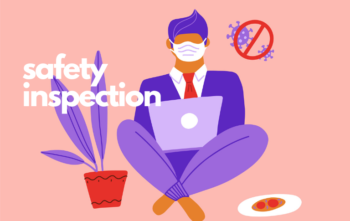Over the last 20 years we have seen the rise of the BPO (business process outsourcing) industry with many large enterprises moving their call centers, accounting functions, real estate admin support and other operations to the Philippines.
The BPO businesses are owned not necessarily by Filipino shareholders, with many retained by American, Australian, British or other country-domiciled entrepreneurs making the most of the BPO boom. Low costs, higher profits. Of course, these BPOs are registered as Philippines corporations.
Customers who use BPO staff leasing centers, or those that have setup operations directly in the Philippines, primarily have staff located in a single location corporate office building, rather than working individually from home.
BPO Change to Work At Home Model
That has all changed with COVID-19. In recent weeks, the BPO industry in the Philippines, is now pivoting to save their operations from collapse, and ensuring their employees are safeguarded by approving work at home modalities.
Due to the lock down ordered by President Rodrigo Duterte, from 15 March through to 14 April 2020, many businesses have closed until further notice. Only certain establishments are allowed to serve the public such as supermarkets, drug stores/pharmacies, BPO centers (Telecommunications), hospitals, and banks.
Entrepreneur.com reports that BPOs in the Philippines employ 1.2 million people, with US, Australian and British companies the leading users of these services. Business Process Outsourcing is a multi-billion dollar industry and was estimated to be worth between $40 to $55 billion by 2020. It now contributes 12% to 15% to the Philippines’ GDP.
In the last couple of weeks, BPO centers have made a sudden change. In order to continue operations and abide by the new lock-down directives set by the Philippines government, they have allowed employees to transfer equipment from their offices to their homes for work-from-home arrangements.
BPO supervisors escort employees to their homes and bring needed equipment such as computers, headsets, and other necessary equipment for them to use while working. The supervisor team then sets it up at home for the employees to use effectively while at home. This will ensure that at-home workers are fully supported while working.
Despite the inconvenience of COVID-19, the benefits of this approach include:
- protecting BPO centers’ revenue
- protecting their employees’ health
- BPO employers will still be able to pay salaries of staff so they can survive the lock down.
This has been the first time that enterprise-level BPO companies have allowed their employees to work from home with hopes that the implementation will be successful during the outbreak.
Bringing Jobs Back to Country of Origin
While many BPOs will continue business as usual with new at-home monitoring processes implemented, for some customers the remote-work model goes against their policies and regulations, or disruptions over the last couple of weeks have caused reduced ability to service customer enquiries.
Companies like Telstra, who have most of their call centers in the Philippines will now bring 1,000 jobs back to Australia. They will source temporary workers from Qantas, where two-thirds of their 30,000 workforce was stood down due to the impacts COVID-19 has had on the airline industry. It is likely that other countries like United States and Britain will follow suit.
Everyone is still hoping for a positive outcome of the lock-down to prevent COVID-19 from spreading, so that everything will be back to normal in the coming months.





